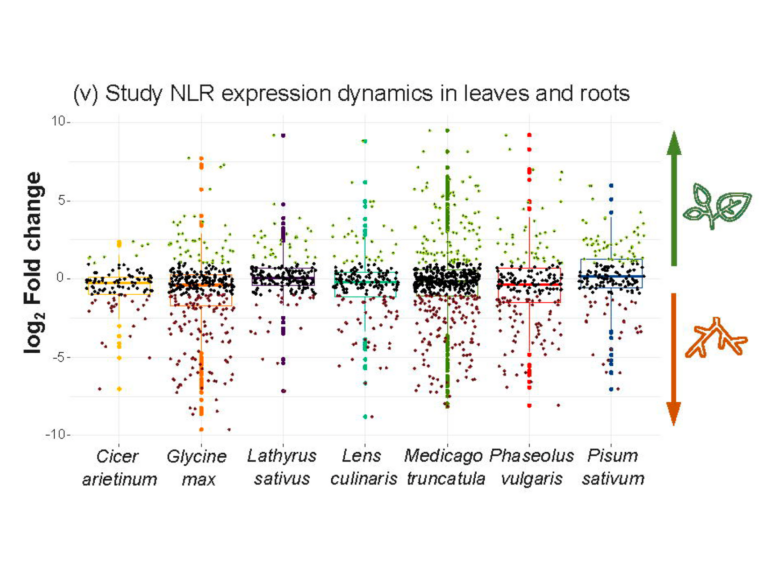The wheat stem rust resistance gene Sr43 encodes an unusual protein kinase
To safeguard bread wheat against pests and diseases, breeders have introduced over 200 resistance genes into its genome, thus nearly doubling the number of designated resistance genes in the wheat gene pool1. Isolating these genes facilitates their fast-tracking in breeding programs and incorporation into polygene stacks for more durable resistance. We cloned the stem rust resistance gene Sr43, which was crossed into bread wheat from the wild grass Thinopyrum elongatum2,3. Sr43 encodes an active protein kinase fused to two domains of unknown function. The gene, which is unique to the Triticeae, appears to have arisen through a gene fusion event 6.7 to 11.6 million years ago. Transgenic expression of Sr43 in wheat conferred high levels of resistance to a wide range of isolates of the pathogen causing stem rust, highlighting the potential value of Sr43 in resistance breeding and engineering.


